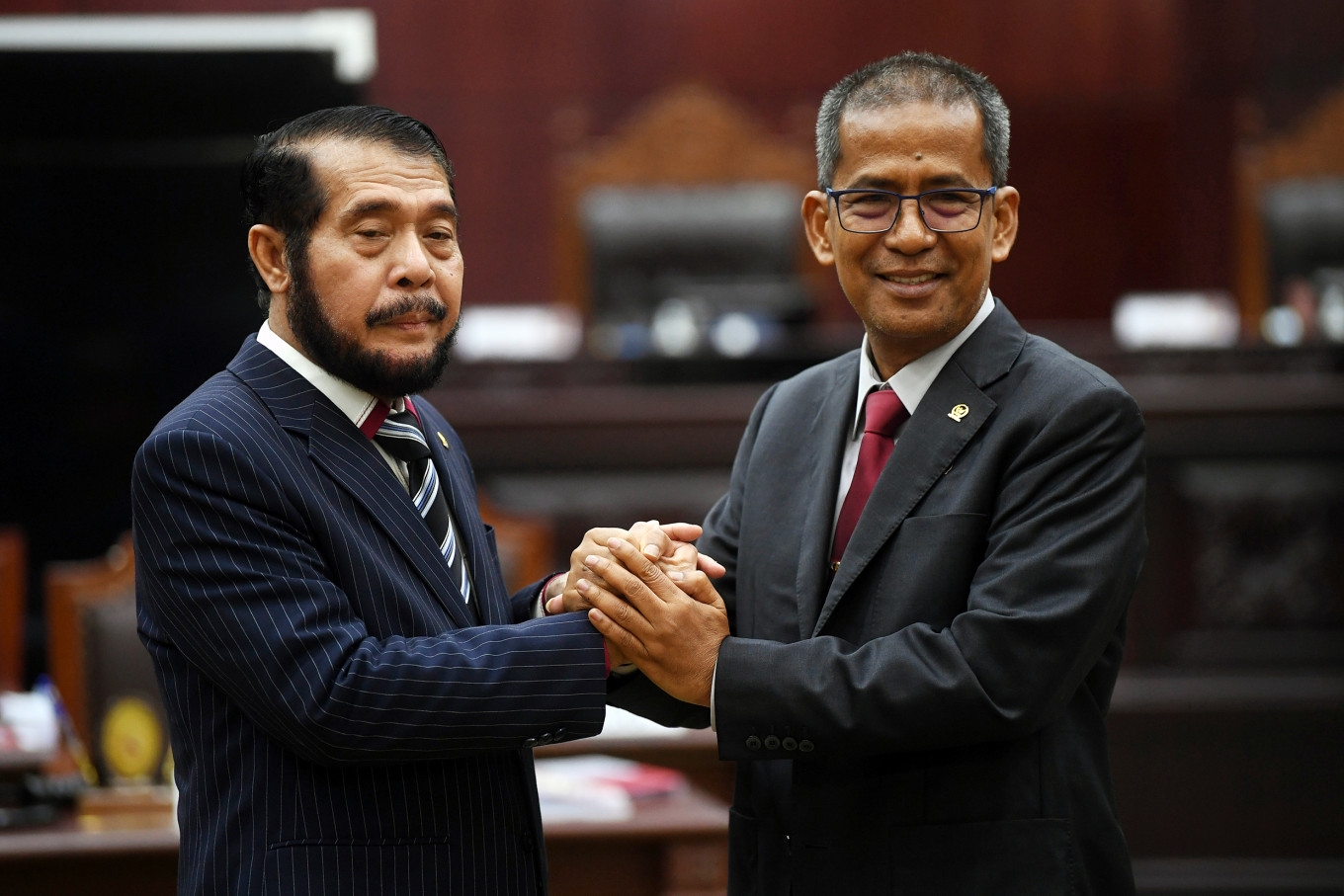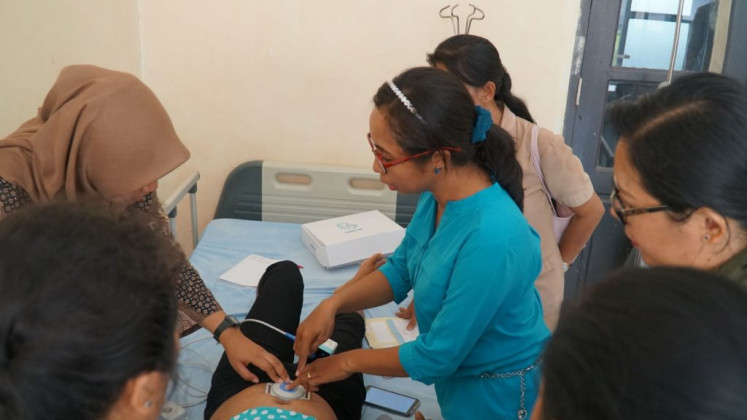Popular Reads
Top Results
Can't find what you're looking for?
View all search resultsPopular Reads
Top Results
Can't find what you're looking for?
View all search resultsOur (in-)constitutional court
A wrong decision would only confirm suspicions that the court has become a tool of those in power, not the independent body that it was set out to be.
Change text size
Gift Premium Articles
to Anyone
 Anwar Usman (left) dan Saldi Isra congratulate each other after they were elected as Constitutional Court chief justice and deputy chief, respectively, in Jakarta on March 15, 2023, for the 2023-2028 period. The election was held internally by nine justices of the court. (Antara/Akbar Nugroho Gumay)
Anwar Usman (left) dan Saldi Isra congratulate each other after they were elected as Constitutional Court chief justice and deputy chief, respectively, in Jakarta on March 15, 2023, for the 2023-2028 period. The election was held internally by nine justices of the court. (Antara/Akbar Nugroho Gumay)
T
he spotlight is on the Constitutional Court (MK) as it is deliberating a petition that demands a change in the way people vote in the legislative elections next February. The choice boils down to voting for candidates, the way it has been in the past four elections since 2004, or for political parties, the way it was for all six elections preceding them during the Soeharto dictatorship.
Former deputy law minister Denny Indrayana last week brought the issue to public attention when he claimed, citing insiders, the court had made its decision to go back to the old closed-list proportional representative system. Speaking from Australia, where he is a visiting law professor, he said an announcement was imminent.
No one from the court has contradicted Denny’s statement. Individual citizens have reported him to the police for “leaking a classified state document”, not for disinformation. Denny may be on to something. Irrespective of whether he is right or wrong, the spotlight should stay with the court to make sure it does not make the wrong decision.
We challenge the court to prove Denny is wrong by rejecting the petition, which represents the interest of the ruling Indonesian Democratic Party of Struggle (PDI-P). At least seven other parties in the House have openly rejected the closed-list electoral system proposal.
It is a no-brainer which of the two systems is superior. The open-list gives voters the power to choose who to represent them in the national and local legislatures. The closed-list system takes this power out of their hands and gives it back to the chairs of the political parties.
No electoral system is perfect as both are vulnerable to “money politics”. The open system encourages populism, but the closed-list is highly deceptive as parties may put up popular candidates as “vote getters” with no intention to send them to the legislatures.
We would normally leave it to the court to debate the finer constitutional points in reaching a decision. Since the court lately made rulings that go against the spirit of democracy, public pressure must be brought to ensure it makes the right decision on this one.
The electoral system is too precious to be left to the nine justices now that public trust in the court is waning. A wrong decision would only confirm suspicions the court has become a tool of those in power, not the independent body that it was set out to be.
There is no more blatant example of this in the way the court ruled last month to extend the term of the chairmanship of the Corruption Eradication Commission (KPK) from four to five years. The court came up with the lamest excuse for extending it: That most other state institutions serve a five-year term. Would the court now extend the term of the press council from the present three-year term in the name of “equal treatment”?
The ruling means KPK chief Firli Bahuri extends his term by one year beyond December. He is the last person who deserves the extension. There are just too many reports of ethical breaches leveled against him since he took charge. Under him, the KPK has become a toothless institution, cherry picking cases that serve the interests of those in power.
Public confidence has also gone south since the MK has been led by Anwar Usman, the husband of President Joko “Jokowi” Widodo’s younger sister. This inevitably raises suspicions of conflict of interest in some of the court’s rulings.
The student-led people power movement that brought down the Soeharto tyranny in 1998 used the rallying cry of fighting against corruption, collusion and nepotism, or KKN in Indonesian acronyms. The way state institutions like the KPK and the MK are becoming tools of the powerful suggests these problems are rearing their ugly heads once again.
We may need to revive the anti-KKN rallying cry.










